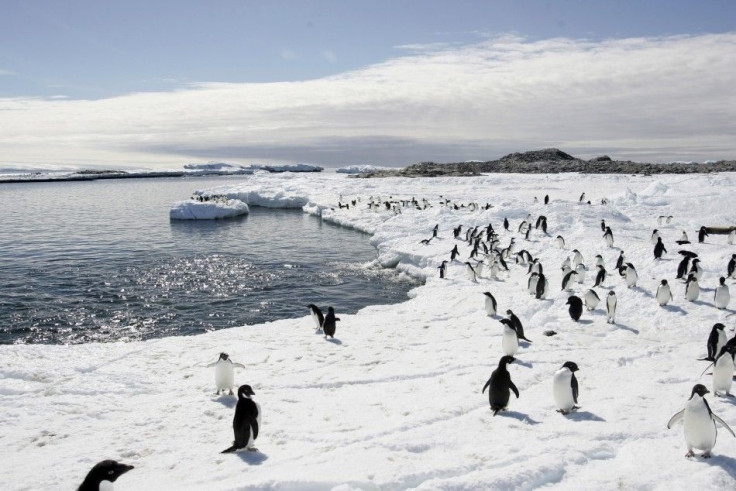Antarctica Tourism Rebounds Thanks to Amundsen And Scott

(Reuters) - Sweeping landscapes, an untouched coastline, whales and penguins galore and the thrill of walking in the footsteps of famous explorers.
After a drop in tourist numbers in recent years, Antarctica is gaining in popularity this year thanks to the recent centenary of the South Pole expeditions and as people start to feel more comfortable shelling out for a once-in-a-lifetime trip.
British university lecturer Andrew Murray, 34, said a long-held fascination with explorers, mountains and remote landscapes had inspired him to spend around 3,600 pounds on a 10-day Christmas trip to Antarctica. He paid for flights to Argentina separately.
When I booked it, I thought what have I done? It is a lot of money, he told Reuters.
He said it was worth it though, with highlights including camping on the ice, seeing almost 50 humpback whales feeding in the Drake Passage and getting up close and personal with Gentoo penguins on a pebble beach.
It's a place that has such an impact on you, he said. But a lot of people seem to put out of mind that it is possible to do it.
Earth's only continent without a permanent human population welcomes most travellers from the United States, Australia, Germany and the UK, according to the International Association of Antarctica Tour Operators (IAATO).
Around 25,320 people travelled to the continent during the 2011/2012 season, a drop of 25 percent on the previous year as the global recession hurt bookings.
For the 2012/13 season, IAATO forecasts around a 10 percent rise in tourists to 29,200, still well down on the near 46,300 that made the trip during the 2007/08 season.
BUCKET LIST
It is 100 years since Robert Falcon Scott made his fateful journey to the South Pole, losing out in a race to Norwegian rival Roald Amundsen. It was to be a journey from which Scott and his party never returned. Scott died around March 29, 1912.
Nowadays, the journey is a lot smoother, with the majority of visitors sailing in a comfortably equipped research ship from Ushuaia in Argentina, down to the Antarctic Peninsula via the Drake Passage.
The Scott exhibition at London's Natural History Museum, which includes a life-size representation of Scott's hut and an emperor penguin egg collected by the team in 1911, has proved a hit with visitors, with over 50,000 people having already attended.
Tour operator Wolters expected around 50 bookings for this winter, and believes that number will rise significantly for next winter.
The Amundsen effect will probably be more evident in the 2012/2013 season, Wolters spokesman Timo Seghorn told Reuters. This is the kind of trip that you book a long time in advance.
The destination is also making it onto the bucket lists of experiences people wish to have before they die.
A poll of travel bloggers by UK tour operator First Choice recommended Antarctica as one of the top five countries to visit were the world to end in December 2012, as predicted by an ancient Mayan calendar.
Polar expedition specialist Quark, whose trips range from $4,295-$29,995, is hoping to attract more families to its tours. They mostly comprise couples and single travellers now, which shows how the market has changed since the mid 1990s, when the average tourist was an American pensioner.
Tourists are more heterogeneous now, from the backpackers to the millionaires and there are products catering to them all, said Ricardo Roura, who advises the Antarctic and Southern Ocean Coalition.
While no country rules the continent, it is the subject of inter-governmental treaties.
ASOC says it is the only non-governmental organisation working full time to preserve the Antarctic continent and its surrounding area and has called for more regulation as tourism increases, such as that which banned the use of heavy fuel oil.
Roura said it was hard to determine the impact tourism has on the region and its wildlife, especially when combined with other factors such as climate change, although he cited one peculiar example of an elephant seal apparently jumping to its death from a cliff after being scared by visitors.
There are difficulties ensuring compliance with regulations, he said. There are no 'park rangers' in Antarctica.
(editing by Paul Casciato)
© Copyright Thomson Reuters 2024. All rights reserved.






















